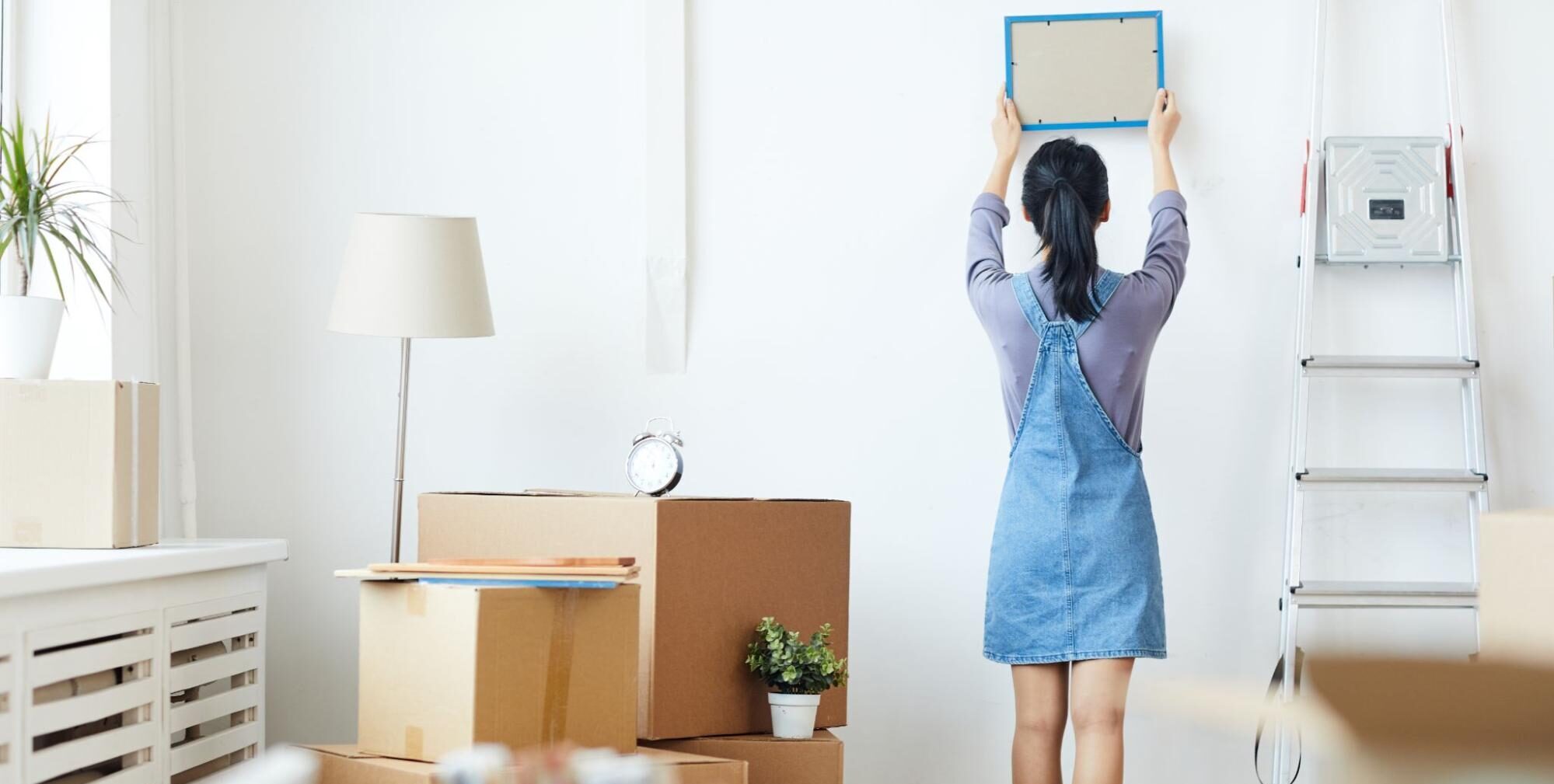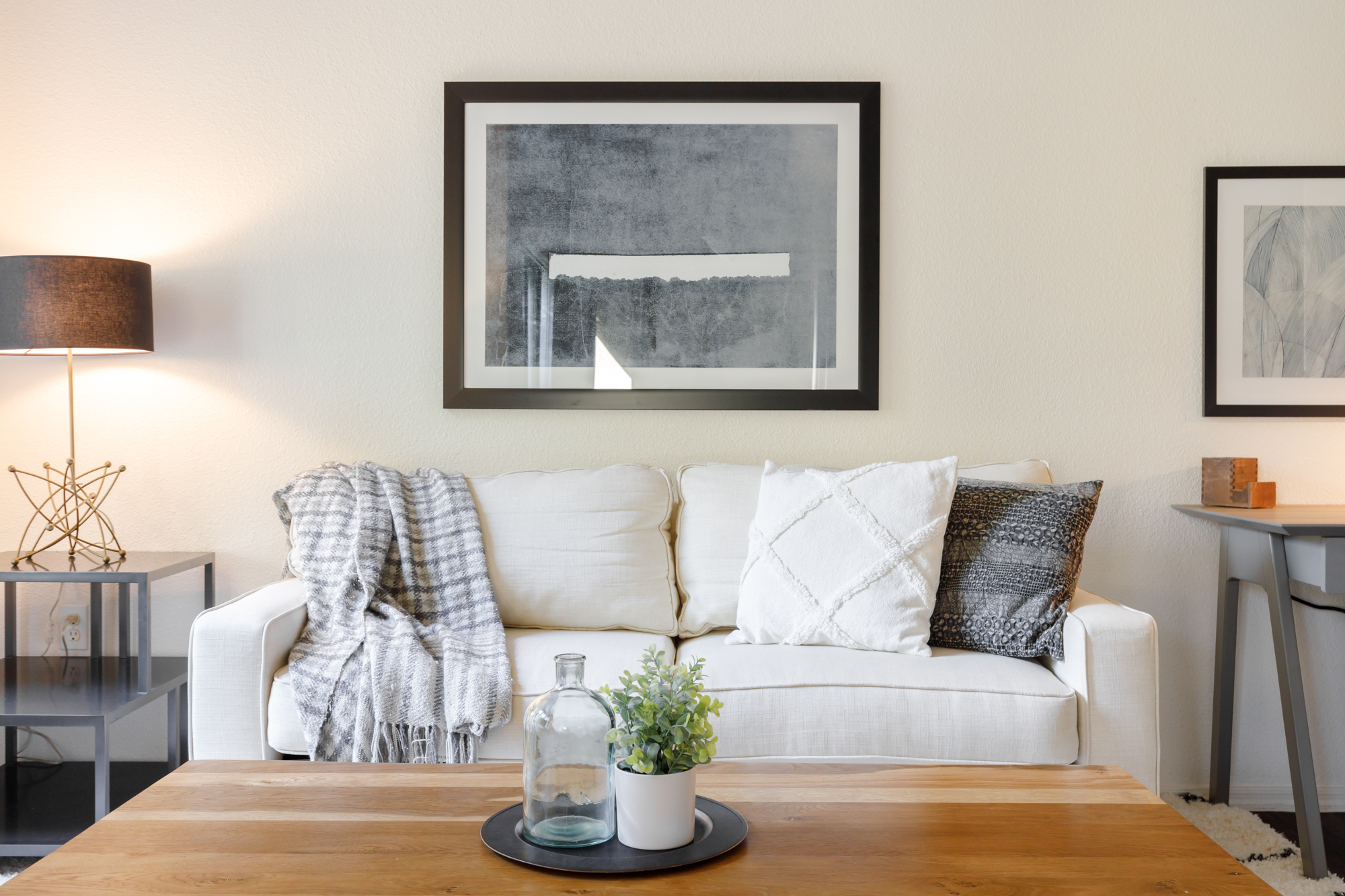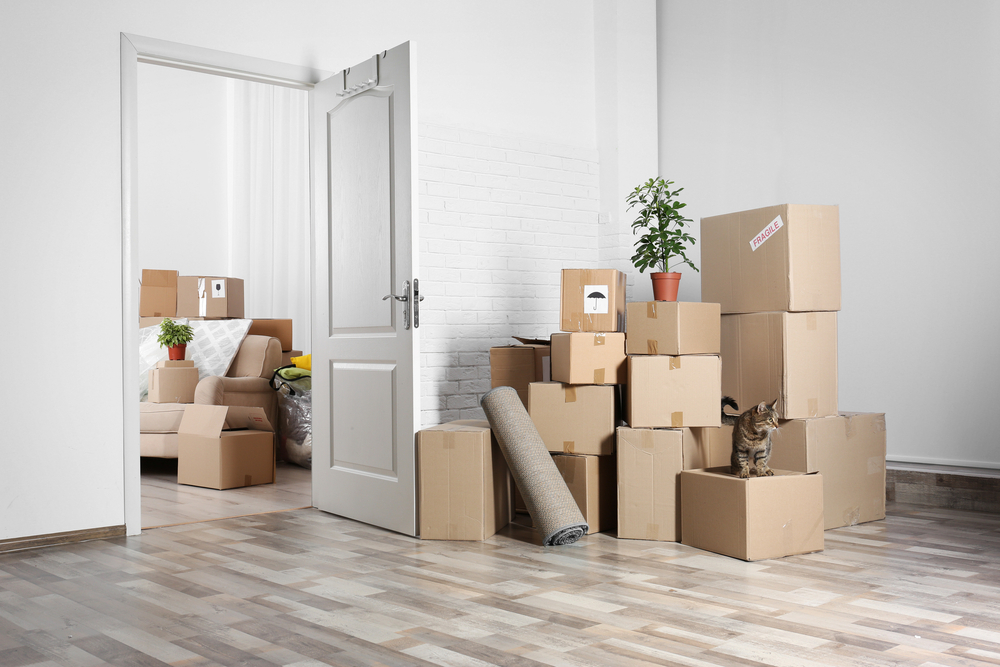
Your Guide to Decluttering Your Life: How to Clean Up Digital, Physical, and Mental Messes

When it comes to spring cleaning, you likely think about editing your home environment, separating your belongings into “keep,” “toss,” and “donate” piles, and then driving around with trash bags meant for Goodwill in your trunk until next spring. But, what does it really take to declutter your life?
If you’re feeling overwhelmed and think you could benefit from having just a little less to deal with in your day-to-day life, here’s our guide to decluttering, factoring in three types of “messes” to wade through:
- Digital messes
- Physical messes
- Mental messes
Let’s get started!
How to clean up digital messes
Between your smartphone, iPad, computer, and any other tech you use throughout the day, a lot of “stuff” can pile up, from unnecessary notifications to outdated files and everything in between. If you’ve found yourself staring dead-eyed at the number of red notifications on your phone or had to click through a maze of files on your desktop, this digital detox advice is for you:
1. Delete your emails
Unless you’re the type of person who can’t sleep unless they have exactly zero unread emails in their inbox, you’ve likely gone through a period where you’ve racked up a few more messages than you care to admit. Sure, you’ve gone through the important stuff, but what’s left is a mix of corporate promotions, newsletters you accidentally signed up for, and basic spam. (As I write this, I see that I have 13,938 unread emails, which is, well, horrifying).
Take an hour (or two) to put on your favorite old movie or TV show and start deleting your emails. It’s the kind of mindless activity that can have major rewards if you put in the time and the effort. And, while you’re at it, start unsubscribing to emails that you have no interest in reading—your future self launching into this task next spring will thank you.
2. Manage your subscriptions
Speaking of subscriptions, take some time to identify what you pay for each month and ask yourself whether you really need it. Sure, you had to have Apple TV when “Ted Lasso” was on, but if you haven’t watched anything else since, it may be time to use that money for something else. The same applies to non-digital subscriptions—if you haven’t found a use for them in the past three months, it may be time to say goodbye.
3. Delete unused apps
If looking at your home screen on your phone is a little dizzying, you can probably benefit from some cleanup on the app front. That sports ticketing app you had to download to attend one game last year? That can go. The “must-play” game that you haven’t touched in months? Say goodbye!
The great news with apps is that if you suddenly find out that you need them again, you can just re-download them. But if they’re just sitting dormant on your phone for months on end, they’re just taking up storage space—and mental space—that can be better used for something else.
Once you’ve weeded out unnecessary apps from your phone, take some time to organize them into folders, if you haven’t already. While it may take you a little time to relearn where everything is, the result is a cleaner, sleeker phone, and fewer mental headaches for you as you agonize over where among your 100 apps UberEats wound up.
4. Organize your desktop files
If you’re anything like me, your desktop can become a bit of a catch-all for files you want quick and easy access to. The problem is that there’s only a certain amount of space, and the more files you save off to the side, the harder it will be to find them later on. For example, my desktop right now is a chaotic mix of screenshots, websites for theater productions I want to attend, items I want to add to my wedding registry, and documents for my taxes (bleh).
Similar to your phone apps, delete what you don’t need (like the screenshot of a QR code that I don’t remember taking or why I took it!), then organize the rest into folders.
5. Back up your computer
Now that your files are all beautifully organized, you can take this a step further and back them up on a hard drive or in the cloud. Not only will you benefit from the mental assurance that your precious files are safe in the event your laptop unceremoniously crashes, but you can even delete files locally once they’re hosted somewhere else.
How to clean up physical messes
Even if we don’t fully realize it, being surrounded by a physical mess can have an impact on our mental health. For this reason, decluttering your home is still an important part of properly organizing your life. Use these tips to get your place ship-shape and have one less thing to worry about:
1. Separate by seasons
If you have enough storage space in your house or apartment, you can drastically reduce the amount of clutter in your drawers and closet by letting your bright tees and shorts hibernate for the winter, and stashing your sweaters away when the sun comes out. This will make it easier to find what you’re looking for and provides the perfect opportunity twice a year to identify which pieces of clothing you don’t want in your wardrobe as the new season approaches.
2. Clear out the junk
Another big element of in-home clutter is the amount of junk you have lying around that you don’t have a set space for. From unread mail to rubber bands to all of the mini hand sanitizers you’ve hoarded the past couple of years, your apartment is home to a bunch of random things that you probably wouldn’t miss if they just suddenly went away.
3. Go paperless
When it specifically comes to mail, you can help yourself down the line by going paperless for many bills and notifications you receive in the mail. Not only is this better for the environment (score!), but you won’t have to deal with wondering whether you should save that health insurance letter or throw it in the trash. All the information will be stored digitally for you to access if you need it. Depending on which provider you’re contacting, you should be able to update your settings completely online.
4. Clean out your car
Yes, it’s important to keep your home clean and decluttered, but when was the last time you turned your attention to your car? Set aside some time to clear your belongings out of your car and give it a proper vacuuming for good measure. A lot of what’s in there will wind up being trash (hello, empty Starbucks cup from three months ago!), but you may also find some surprises—like the nice sweater you left in the trunk.
5. Think twice before buying new things
Another way to look out for your future self is to have an internal heart-to-heart anytime you’re tempted to bring something new into your home. There have been more than a few times when I’ve gone into Target for milk and come out with a bunch of knick-knacks that I didn’t need. By checking in with yourself and asking if you really need something, you’ll likely save money and avoid tossing things out down the line.
How to clean up mental messes
Now that your digital life and physical space are in order, it’s time to turn your attention to your mental clutter—aka thoughts and decisions that take up space, serve very little purpose, and keep you from being your best self. Here are our tips for slowing down and better sorting through your thoughts:
1. Try journaling
Sometimes the easiest way to sort through your thoughts is to put pen to paper (or fingers on keys) and just spew what it is you’re feeling on any given day. Journaling isn’t just for middle-schoolers dealing with first crushes, and it only takes five to 10 minutes to record the details of your day. And, unwinding your emotions can help give you enough mental clarity so that you won’t spend the remainder of your evening dwelling on them.
2. Meditation
Similar to journaling, meditation is another way to carve out time in your day to gain some mental clarity. You don’t have to spend too much time meditating to earn its benefits—even a couple of minutes can help you clear your mental clutter and reset your emotions.
3. Prioritize activities that bring you joy
With everything you have to accomplish to get through the day—commuting to work, doing your job, preparing your meals, keeping your house clean, and taking care of your kids or pets—there seems to be little time left over to engage in activities you actually want to do. However, you can cut down on your stress levels by trying your hardest to squeeze in at least one activity a day that’s just for you, whether that’s going on a walk, reading a book, taking a bath, or baking cookies.
4. To-do lists and meal prep
A cluttered mind tends to be one that’s filled with decisions that need to be made—like what you’re going to have for dinner tonight, Or what you’re going to do on Saturday? Making to-do lists and planning your meals ahead of time will help you keep track of any tasks you need to complete throughout the week and leave you without the mental load of continually getting your meals in order on a daily basis.
5. Be present
Last but not least, taking time throughout your day to feel present in the moment can greatly help reduce feelings of stress, burnout, and indecision. Our minds can wander when we have a lot of things on our plates, but checking in with your surroundings can help clear through the confusion and center yourself. Take a few minutes for some deep breaths, and identify the sounds, sights, smells, and feelings around you. This can also help in moments when you’re feeling particularly anxious.
Declutter your life and live with Landing
If you want to become less attached to your physical belongings and other parts of your life that bring you stress, consider living with Landing in a fully furnished flexible-lease apartment. We have thousands of options in over 375 cities throughout the U.S., all of which come outfitted with everything you need to start your new life—with none of the clutter.
Become a Landing member today!









